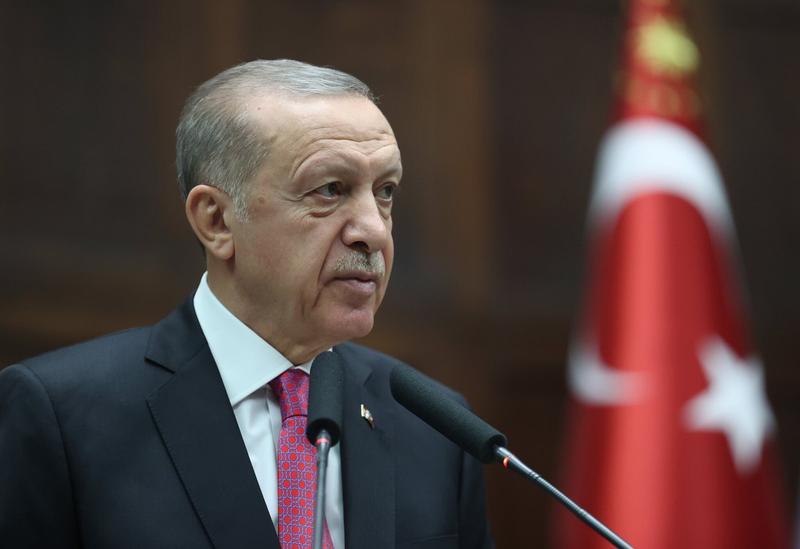
At the Yesilkent cemetery, all the victims from nearby towns are gathered, which were badly damaged or even completely destroyed by Monday’s earthquake, which struck southeastern Turkey, killing more than 8,000 people, writes AFP.
The stunned imam prays for only a few minutes for each deceased in front of grieving relatives before moving on to the next.
In the courtyard in front of the mosque, families kiss the coffins lined up in a row, trying to make a last gesture of affection for their dead.
In one corner, Hatice mourns her 17-year-old daughter, Ruweida, who she thought was saved from the disaster, but who died soon after in hospital.
At the time of the earthquake, she did not realize that her six-story house in Besna, 108 km north of Gaziantep, had completely collapsed.
“I hugged my eight-year-old daughter, who was sleeping with me. I later realized that we were walking on rubble and that our floor had collapsed on top of the others,” she says.
Ruweida was alive at the time, and even her mother assured her that she was fine. But her optimism was destroyed by internal injuries.
Hatice is still waiting for news from her 21-year-old son, Serhat, who will be buried under the rubble. Those around her try to comfort her and recall a series of “miraculous” rescues, sometimes 50 hours after the earthquake.
“I don’t see it that way”
But when an elderly relative insists on seeing her dead daughter’s face for the last time, in accordance with Islamic tradition, Khatija relents.
“I don’t see it that way. I can’t anymore,” she cried.
Beside her, the two sisters of 35-year-old Aisha Cholak, who lived in Nurdag, 66 km east of Gaziantep, cannot tear themselves away from her coffin.
Aisha died together with her husband and in-laws.
“There is nothing left of Nurdagi. The city is completely destroyed,” complains her sister, who did not want to give her name.
But the constant flow of coffins, which indicates an even greater number of dead, does not give families time to say goodbye to their loved ones.

Photo: Recep Tayyip Erdogan, President of Turkey Photo: APAImages / Shutterstock Editorial / Profimedia
Wave of criticism / Erdogan introduces censorship
Faced with growing anger over the slow pace of rescue efforts, Turkish authorities are also trying to block coverage of the funeral and drive away the media.
“We don’t let journalists in here. This is the order we received,” a cemetery official told AFP.
Access to Twitter was also restricted Wednesday afternoon in the country, as information control became a priority for the Turkish government after the disaster.
The deceased relatives of the victims in the courtyard of the mosque do not have the courage to question these practices.
But some do not hide their anger: “Why couldn’t you save him?” an elderly woman shouted before being calmed down by her relatives.
“It took hours to find their bodies,” said Emre Cengiz, the grandson of Done and Ayas Sundar, who were unable to be pulled alive from the rubble. “At least they are together now. This is our only consolation.”
President Erdogan on Wednesday acknowledged “shortcomings” but said the state was “doing its job.”
Improvised tents at night -6 degrees
The families who took refuge at the foot of Gaziantep’s old citadel, a Byzantine legacy, certainly have a different perspective.
They live by dozens in small tents made of plastic sheets, the situation is unbearable in the cold of Gaziantep – down to minus six degrees at night.
“No one came to help us. The authorities could at least distribute tents. Our children are freezing,” complains 40-year-old Ahmet Huseyn. They had already spent two nights in this makeshift shelter.
The family of 14-year-old Emel Osman couldn’t even find a tarp to make a tent. Originally from Syria, they have been in Turkey for seven years.
“This park was designated before the earthquake as a gathering place for disasters,” they recall. “But no official or rescue service showed up.”
Source: Hot News
Ashley Bailey is a talented author and journalist known for her writing on trending topics. Currently working at 247 news reel, she brings readers fresh perspectives on current issues. With her well-researched and thought-provoking articles, she captures the zeitgeist and stays ahead of the latest trends. Ashley’s writing is a must-read for anyone interested in staying up-to-date with the latest developments.